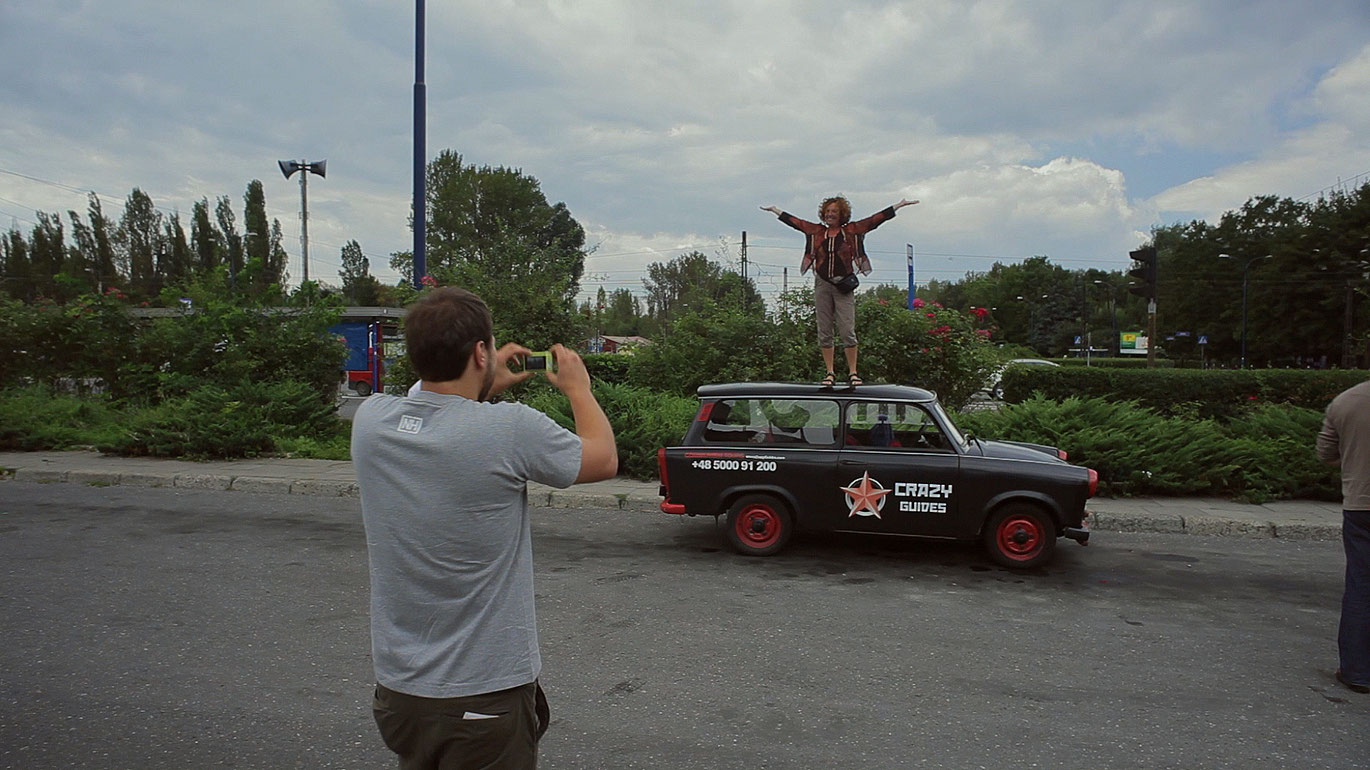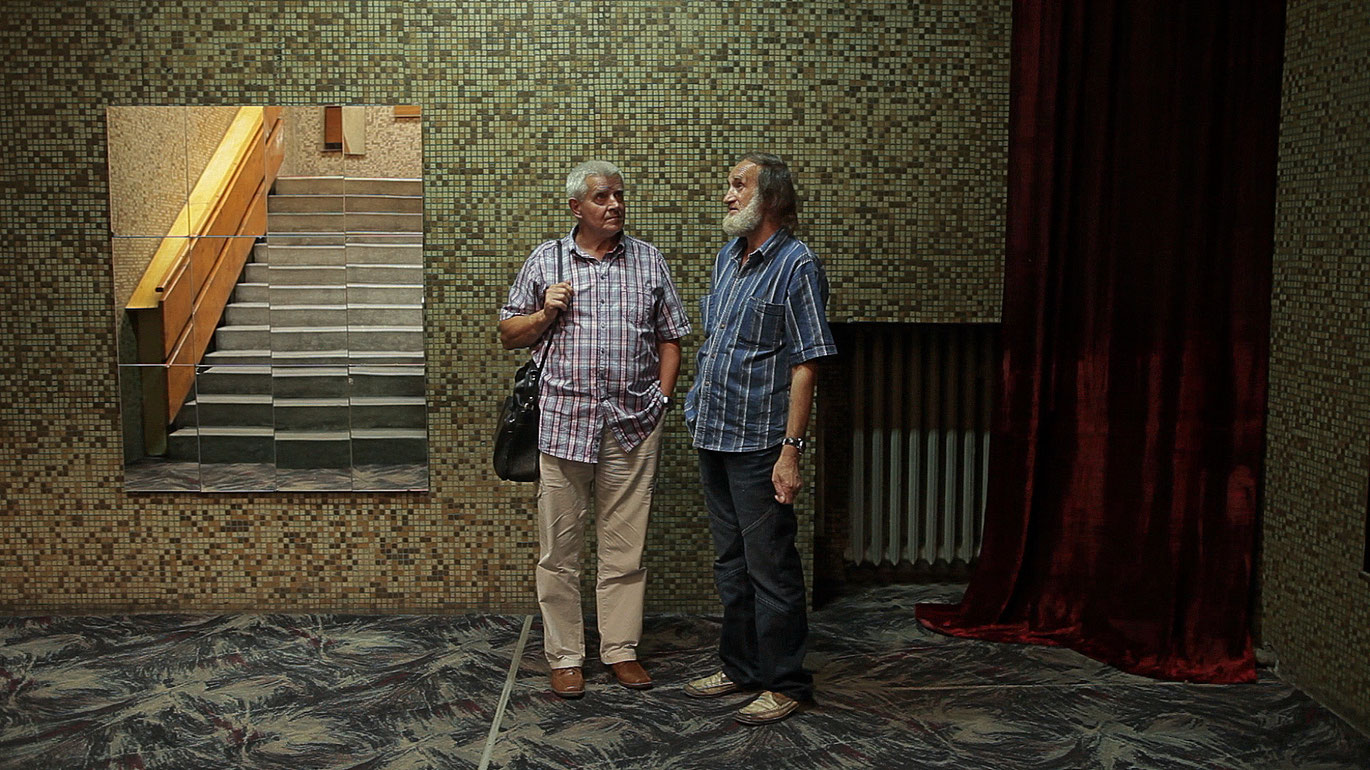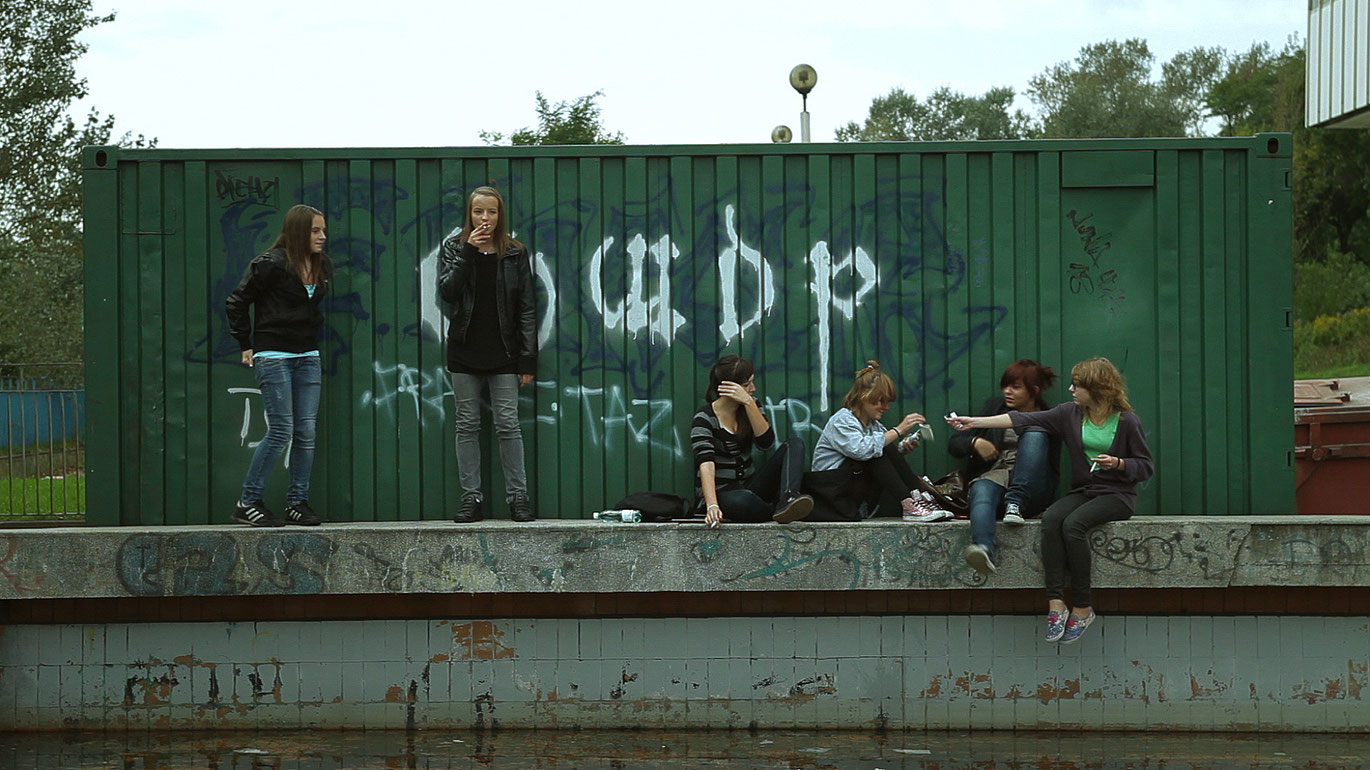Toward Nowa Huta
Young people spin their cars around in the closed-down industrial grounds. A newlywed pair has their picture taken in dilapidated barracks. A tourist guide drives visitors through the city in his Trabant, pointing out the sites of clashes from 1989. Three scenes from Dariusz Kowalski’s documentary Toward Nowa Huta, which offer splendid illustration of its organization: present and past mutually penetrate and comment on one another rather than forming two separate planes. The film does not have to search for a direct confrontation with the past; the theme presents itself automatically, as it were, like an onsite prop that one would have to pass by, anyway, sooner or later.
Kowalski fled the Polish city Nowa Huta, which is currently part of Krakow, as a youngster. He has now returned to gather a picture of the place, since, as he says, he hardly knows it. The city played an important role during the transition years as a site for steel production, and Kowalski’s view of it is correspondingly sober. Although the filmmaker can sometimes be seen in front of the camera, he refrains from subjective phrasings and takes up impressions, images (also old recordings), memories from workers, from an artist; and in between, everyday moments from social life in the city. Rather than filming people who tend toward nostalgia, Kowalski favors those dealing effortlessly with what once was (or those whose memories do not even reach back far enough). Toward Nowa Huta is a portrait of a city that considers itself contemporary in the best sense of the term, a film about the here and now (and its many histories).
(Dominik Kamalzadeh)
Translation: Lisa Rosenblatt
Nowa Huta, a ghostly industrial agglomeration near Krakow, was created in 1949 as a product of the industrial creationism of the Stalin era. Endless symmetric avenues, steel mills, power plants, and prefab housing estates. Today, only a fraction of the residents work in the mills, while the others live on the edge of poverty or have found a foothold in the post-privatization services sector. The spirit of Solidarity and industrial megalomania has long since disappeared, but its remnants continue to smolder. An up-to-date look at a genius loci made up of the city’s diverse social groups. Photogenic images of a place that has been transformed into a monumental stage set of ruin.
(Jihlava International Documentary Film Festival 2012)
Richtung Nowa Huta
2012
Austria
78 min



